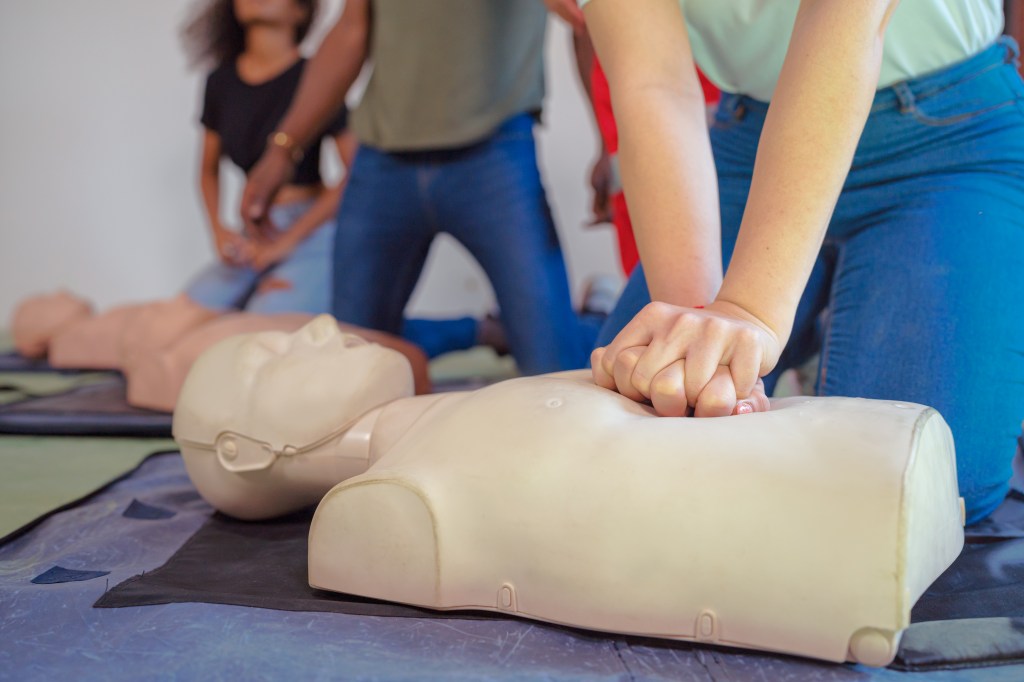Women and those with breasts are less likely to receive CPR and survive cardiac arrest than men, according to a recent study.
A recent Australian study uncovered that bystanders are less likely to intervene to perform CPR when the person requiring treatment is a woman. CPR refers to Cardiopulmonary Resuscitation, which is an emergency life-saving procedure when the heart stops beating, as per the American Heart Association.
The study analysed 4,491 cardiac arrests between 2017–2019 and found that bystanders were more likely to give CPR to men (74 per cent) than women (65 per cent). New research suggests that this could be because CPR training dummies, or manakins, are often male-presenting and don’t have breasts.
The research found that 95 per cent of manakins available worldwide for training do not have breasts, meaning a majority of people learning CPR never experience practising chest compressions on women or female-presenting people.

Breasts do not make a difference to CPR technique, but those carrying out CPR may hesitate to treat someone with breasts, which could make a difference in whether that person survives cardiac arrest.
An October survey from St John Ambulance, UK, found that women who go into cardiac arrest in public are less likely than men to receive chest compressions from bystanders as people “worry about touching their breasts”.
The survey found that “unequal outcomes for women after cardiac arrest may start in CPR training and CPR manakin design related to implicit bias”.
Dr. Rebecca Szabo, who leads the Gandel Simulation Service at the Royal Women’s Hospital, Melbourne, Australia told The Guardian that if dummies were more inclusive, then it “may help people feel more comfortable [in] being confronted with a bra, breasts, and something different” during an actual emergency.
This is believed to be a case of “medical misogyny”, which is where there is systemic bias or neglect towards women in the medical field and training.
If this story has affected you, call the British Heart Foundation’s Heart Helpline on 0808 802 1234 on weekdays 9 am – 5 pm to speak to a qualified nurse and receive guidance on your cardiac arrest recovery journey. They are also available via email at hearthelpline@bhf.org.uk or via online chat.
The post Women are less likely to receive CPR and survive cardiac arrest than men, according to new study appeared first on PinkNews | Latest lesbian, gay, bi and trans news | LGBTQ+ news.



